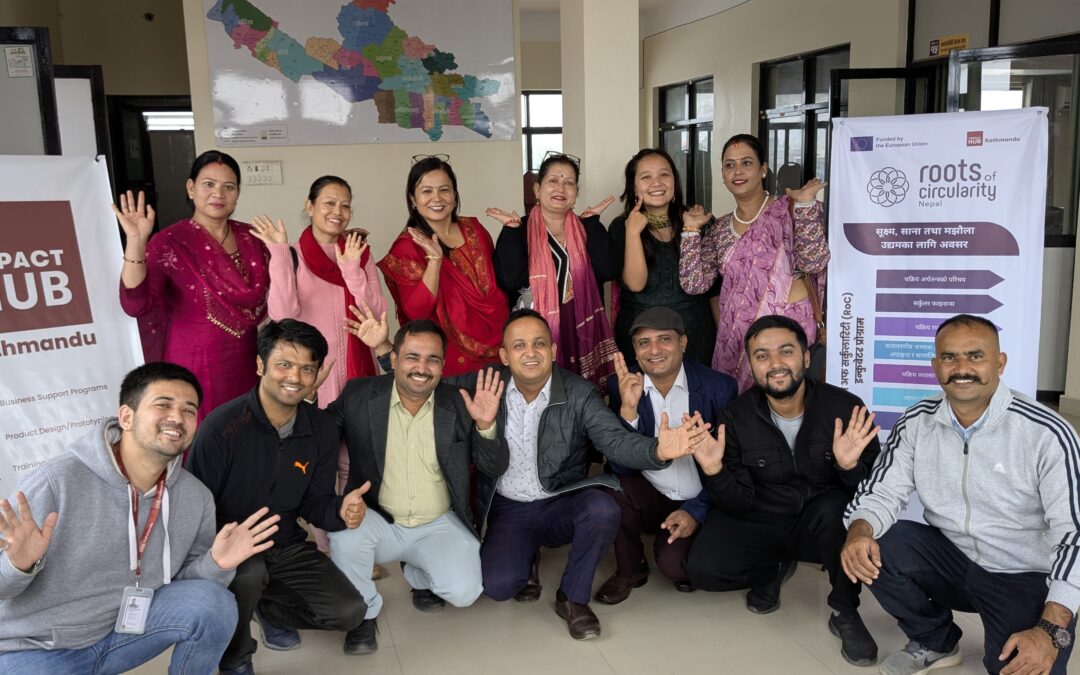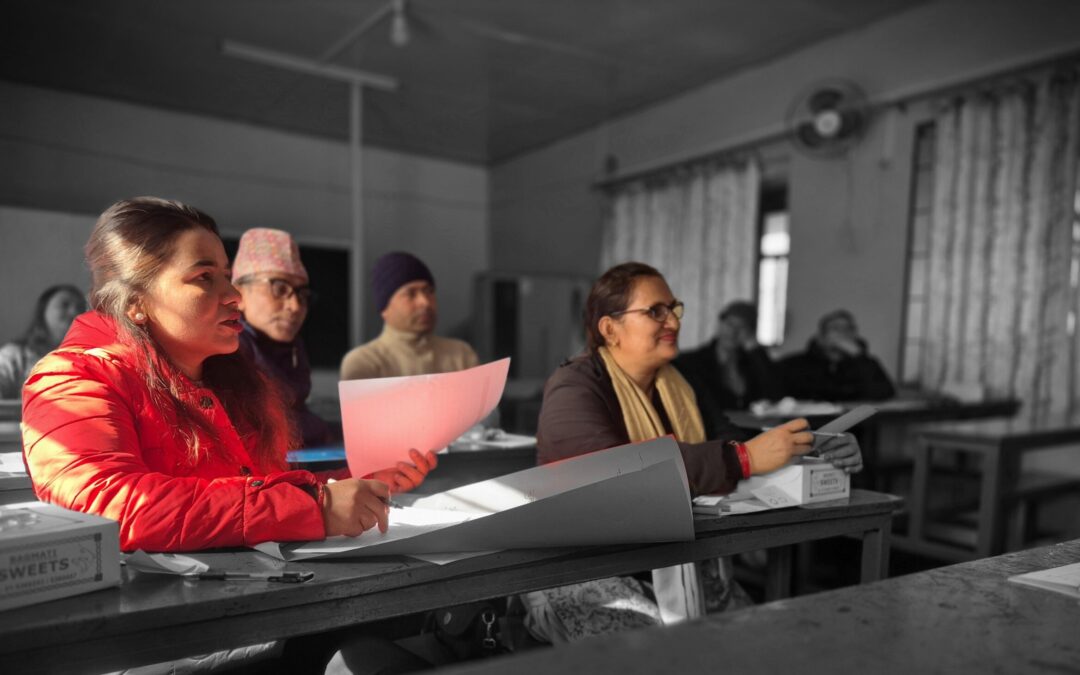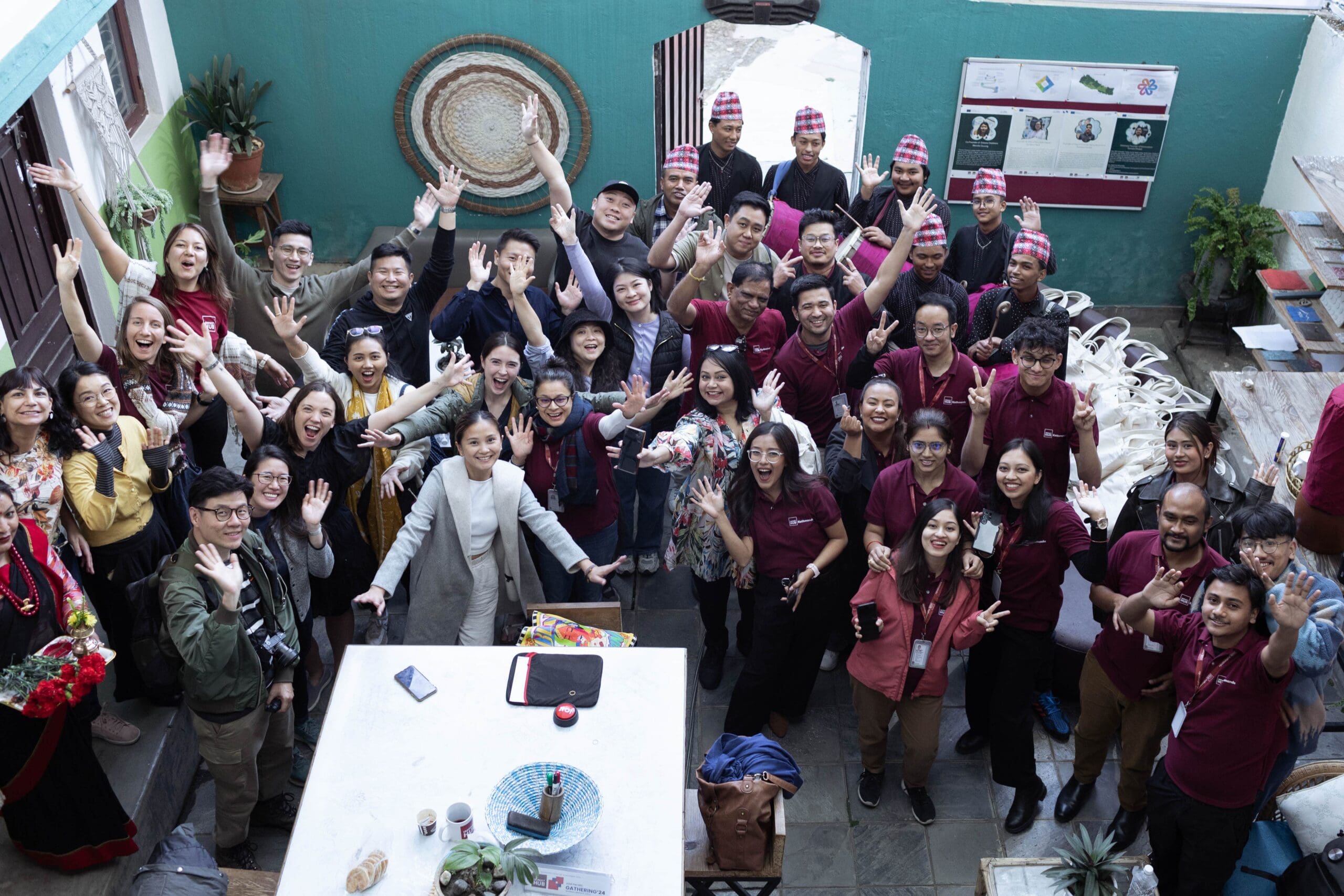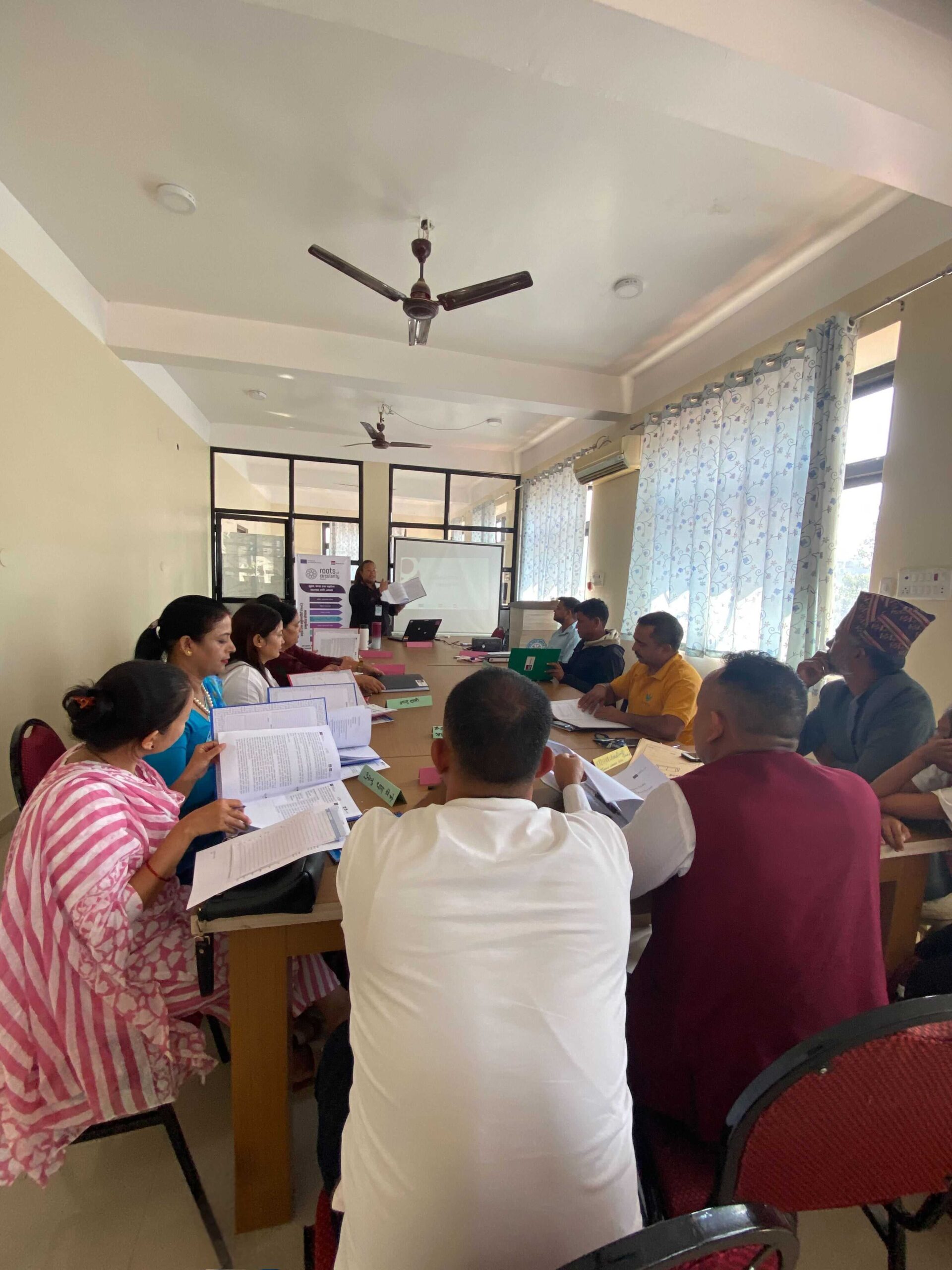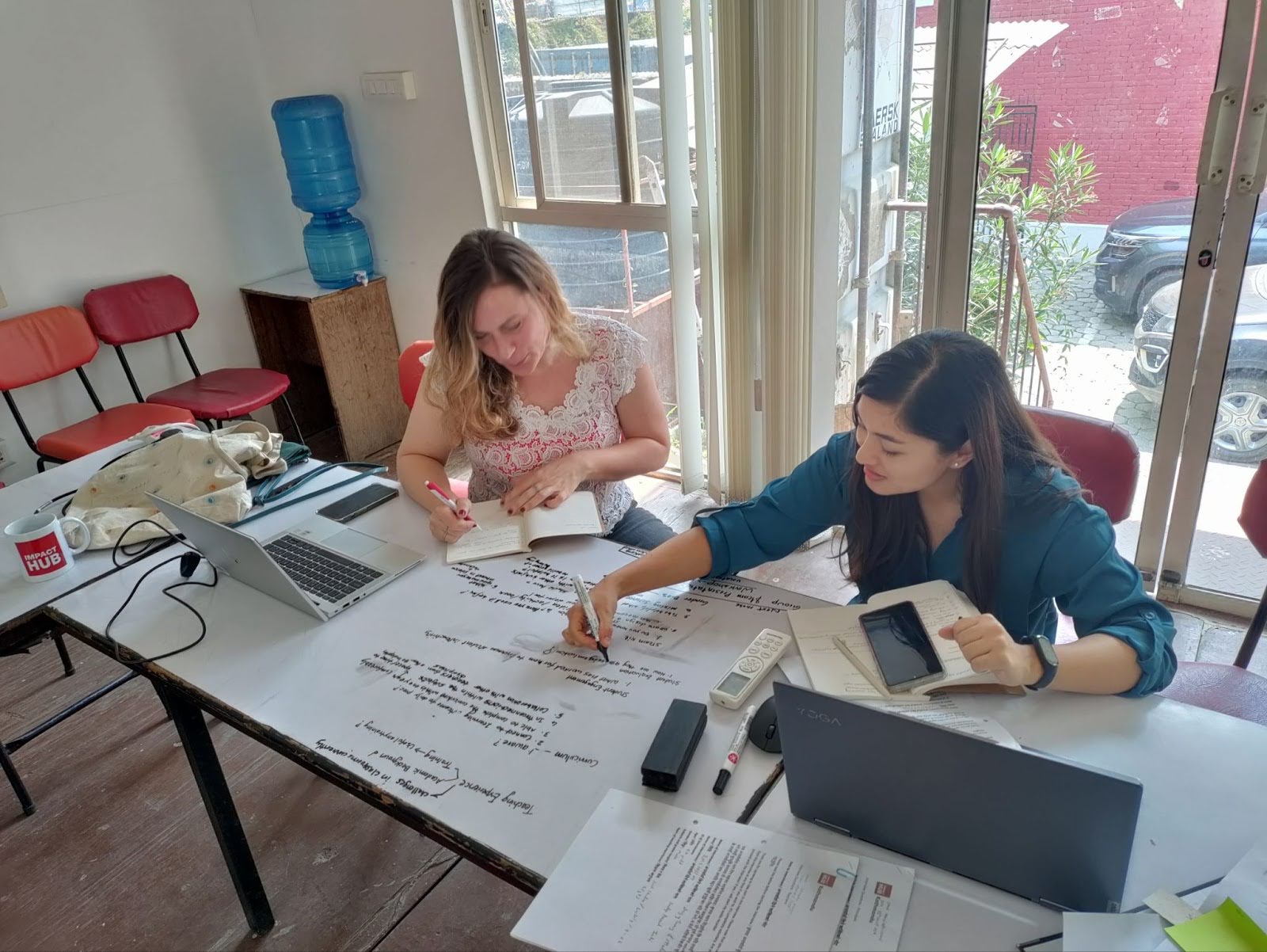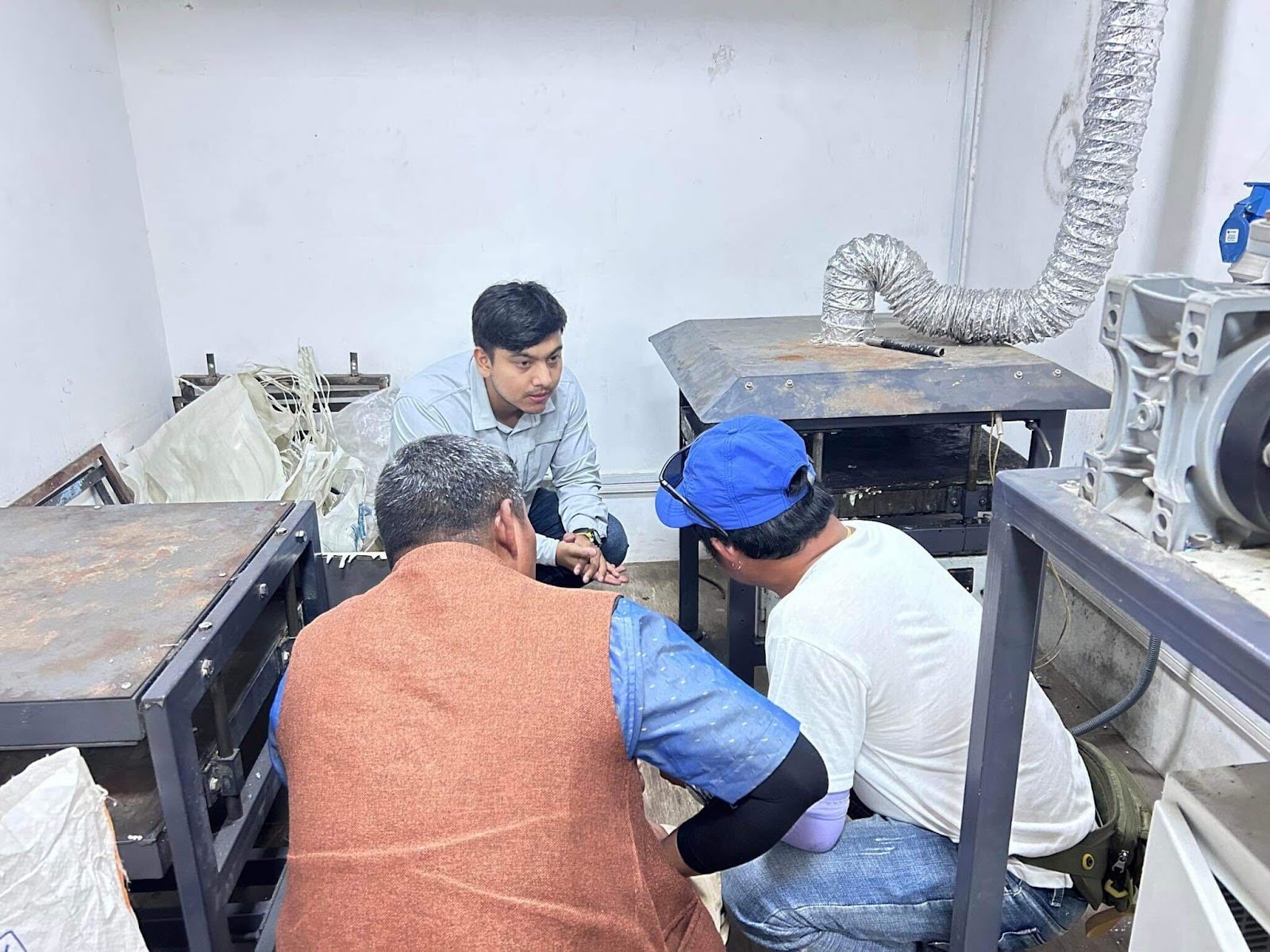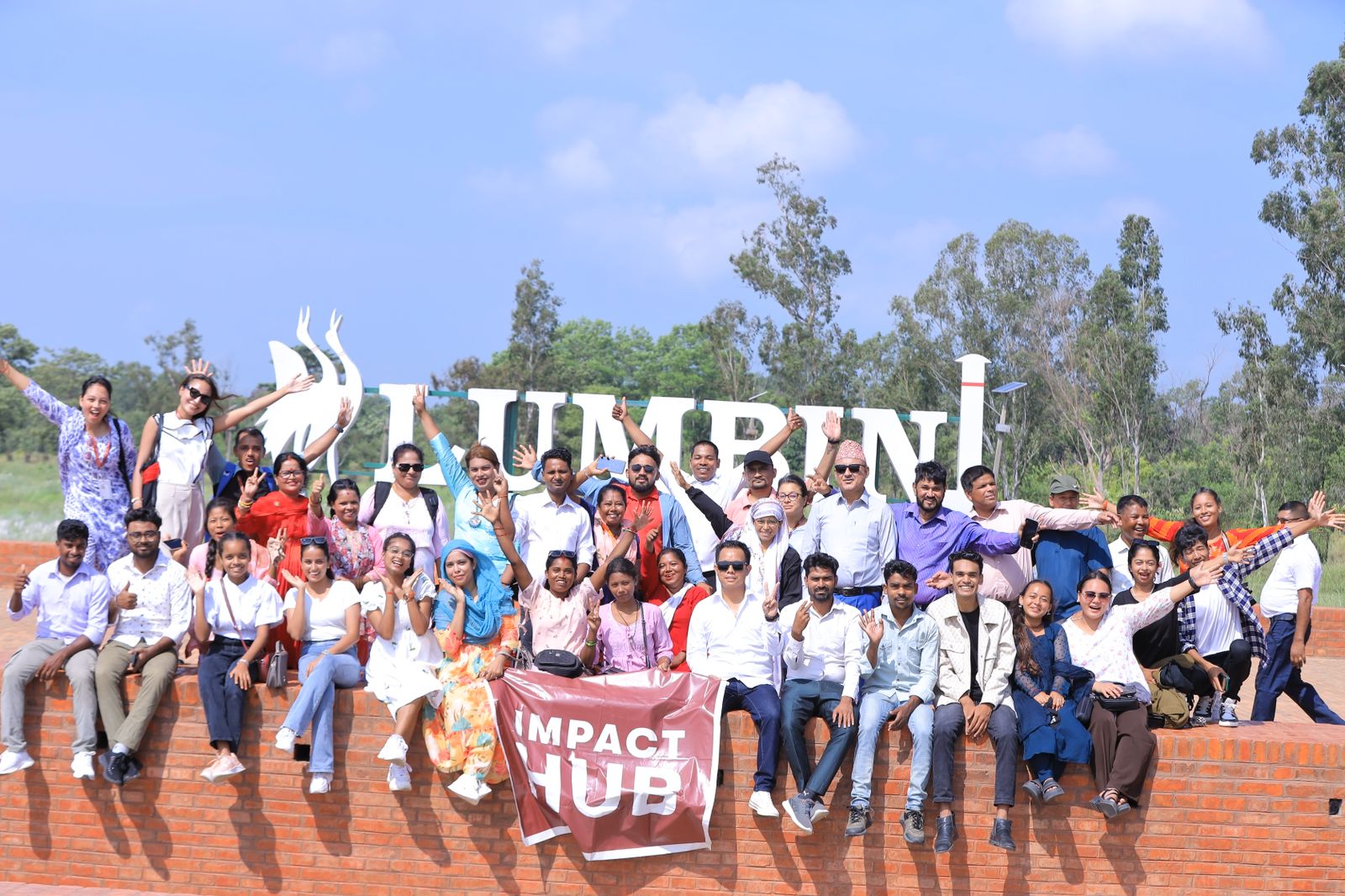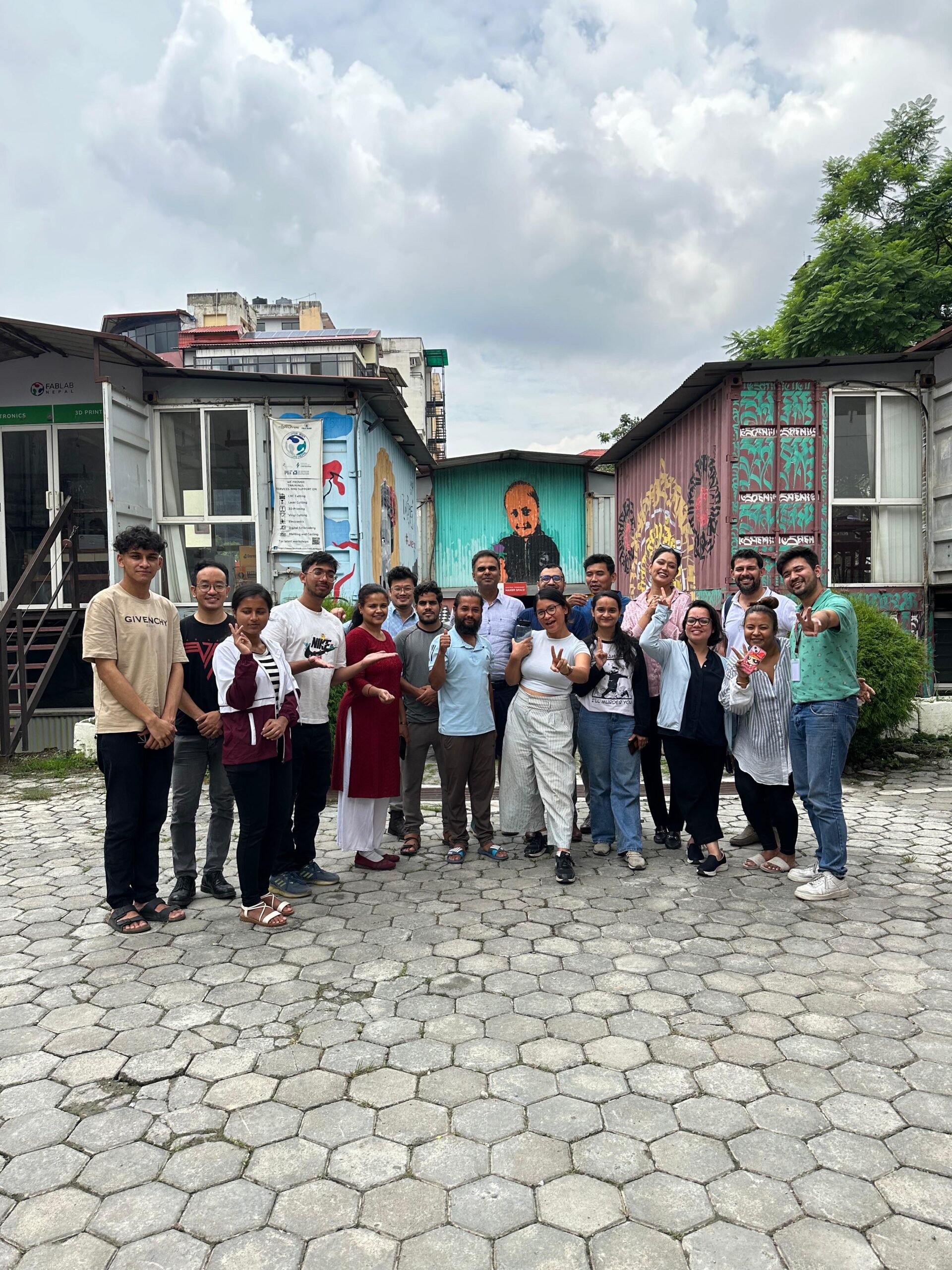About Roots of Circularity (RoC) Project:
Roots of Circularity (RoC) is a 4 year long project spearheaded by Impact Hub Association (IHA) in collaboration with Impact Hub Kathmandu (IHK) and Wildlife Conservation Nepal (WCN) that aims to cultivate a Circular Economy (CE) ecosystem in Nepal. Over the course of four years, RoC will focus its efforts on the Bagmati and Lumbini Provinces, with the primary goal of driving a fundamental shift in Nepali policies, engaging citizens, and nurturing the entrepreneurial landscape to embrace the concept of Circular Economy (CE) principles. The project will engage with civil society organizations, empower micro, small, and medium enterprises, collaborate with academic institutions, and establish a Nepal Circularity Alliance to promote multi-stakeholder collaboration for CE policy development. RoC represents a significant step toward a more sustainable and circular future for Nepal, aligning with global sustainability goals and the Nationally Determined Contributions (NDCs) of 2020.”
The project’s core mission is to instigate a transformation in Nepali policies, engage citizens, and empower the entrepreneurial ecosystem to embrace the concept of CE. Through active engagement with civil society organizations, support for micro, small, and medium enterprises, collaboration with educational institutions, and the establishment of the Nepal Circularity Alliance, RoC is poised to foster a sustainable and circular future in Nepal, contributing to global sustainability objectives and the realization of the country’s NDCs.”

Roots of Circularity Focus Areas
The overall objective of this project is that CSOs, MSMEs, private sector, academia and policymakers act together as drivers of change igniting a systemic shift in the Nepali society and entrepreneurial ecosystem towards circularity and the specific objective (SO) namely to empower CSOs, MSMEs, academic institutions, policymakers and media to promote circularity in Bagmati and Lumbini Provinces.
Key activities include a scoping study conducted among stakeholders in the Bagmati and Lumbini Provinces, comprising dialogues, focused group discussions (FGDs), and observations to assess the understanding and adoption of CE principles, identify opportunities and challenges, and establish potential partnerships and local teams.
About the Scoping Study
Moving forward with Roots of Circularity, scoping studies were conducted by engaging with active representatives from the Civil Society Organizations (CSOs), the private sector, academia, and policymakers in the Bagmati and Lumbini Provinces. The study centered on fostering dialogues and exchanges while also establishing the Nepal Circularity Alliance. Within this framework, the study supported in conducting a comprehensive assessment of the Circular Economy landscape, pinpointing priority sectors in the target regions. Additionally, this facilitated engagement with relevant stakeholders, enhanced the capacities of project partners and collaborators, and ultimately culminated in the creation of the Nepal Circularity Alliance.
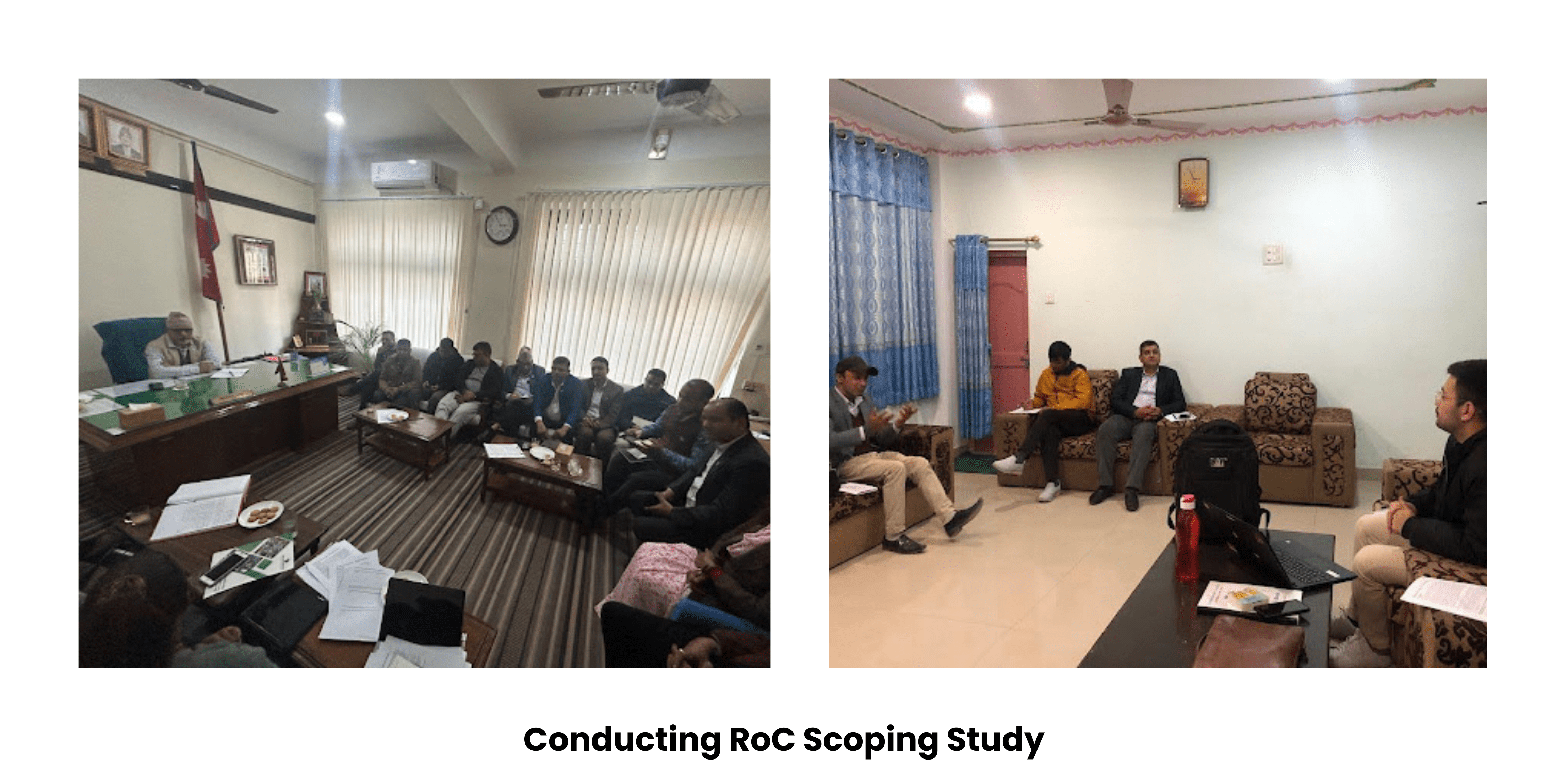
For the Roots of Circularity (RoC), scoping study was necessary for the following reasons:
- Clarifying Concepts and Definitions of Circular Economy
- Fostering Dialogues and Exchanges to understand the understanding among the relevant stakeholder regarding the concept of CE
- Comprehensive assessment based on the dialogues and exchanges
- Creation of Nepal Circularity Alliance
- Informing Research Priorities
At the beginning of the project scoping activity was carried out among the active members of civil society organizations (CSOs), the private sector, academia, entrepreneur social organizations, entrepreneurs and policymakers in the Bagmati and Lumbini Provinces. The study was done through dialogues, focused group discussions (FGD) and observation with questions focused to gather insights into the understanding and adoption of circular economy principles, to understand the opportunities and challenges for CE in the target provinces, while identifying potential partners and a local team to set up the establishment of the Lumbini incubator.
The scoping activity aimed at collecting relevant data streamline the project’s decision making and activities. To summarize, the scoping activity in Bagmati and Lumbini was critical for:
- Engaging local stakeholders,
- Identifying the sectors to focus on for sourcing and selecting potential incubatees during the
- program,
- Identifying potential members for the Nepal Circularity Alliance
- Assessing potential spaces, partners and local team members to establish the incubator in Lumbini
Impact Hub Kathmandu has announced the Call for Applications – the Roots of Circularity Incubator Program funded by the European Union, an initiative aimed at introducing and integrating the concept of Circular Economy into the entrepreneurial ecosystem of Nepal.
The Roots of Circularity Incubator Program will serve as a catalyst for promoting circular economy principles among local entrepreneurs. This initiative aims to go beyond the conventional approach and integrate circularity as a fundamental aspect of the entrepreneurial journey. By fostering collaboration and knowledge exchange, we aspire to empower local entrepreneurs to leverage circular economy principles, making a meaningful and sustainable impact on their businesses.
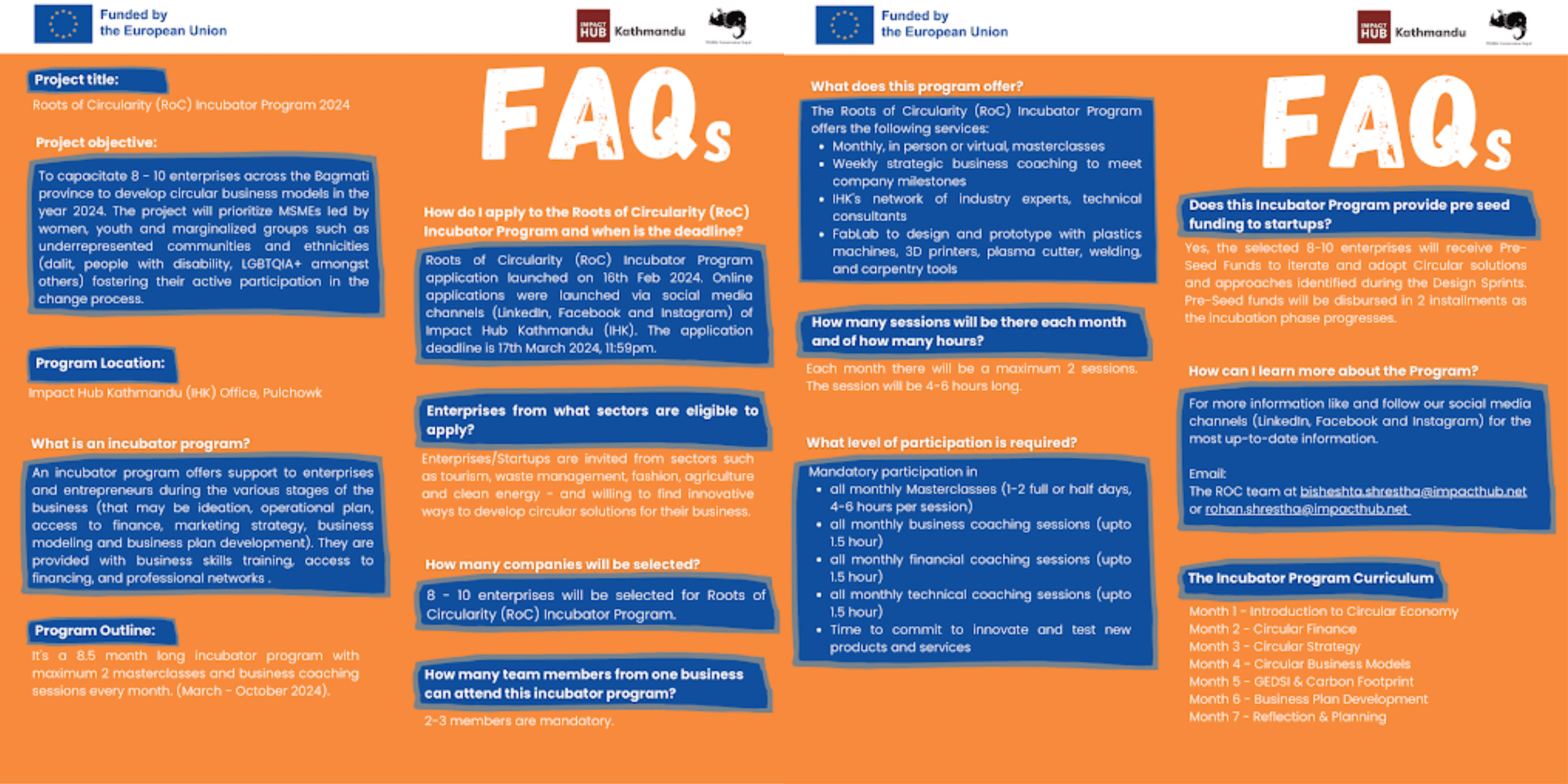
Who is eligible to apply?
We invite motivated and forward-thinking entrepreneurs to apply for this program, be a part of this transformative journey, and contribute to shaping the circular economy landscape in Nepal. Below are the criterias:
- Startups and MSMEs based in Bagmati Province and is operating
Business solution:
- Already adopted or aim to adopt circular solutions, strategies and expected impact
- Workable idea (both digital and/ or non-digital solutions) and its sustainabilityRegistered businesses (in Nepal), beyond the ideation phase with at least 2 years traction in the market
Entrepreneurs with a readiness to:
- Adopt innovative approaches to the grow their businesses,
- Iterate, validate and adopt innovative solutions that come up during the program,
- Have minimum of three members, mandatory female participation, manage the pre-seed grant
- Integrate gender equity and social inclusion
- Enhance business development skills, learn, grow and network,
- Collaboration with other entities in the area of intervention (if applicable).
- Women, youth and marginalized groups – underrepresented communities and ethnicities such as dalit, LGBTQIA+ are encouraged to apply and will be prioritized.
How to apply?
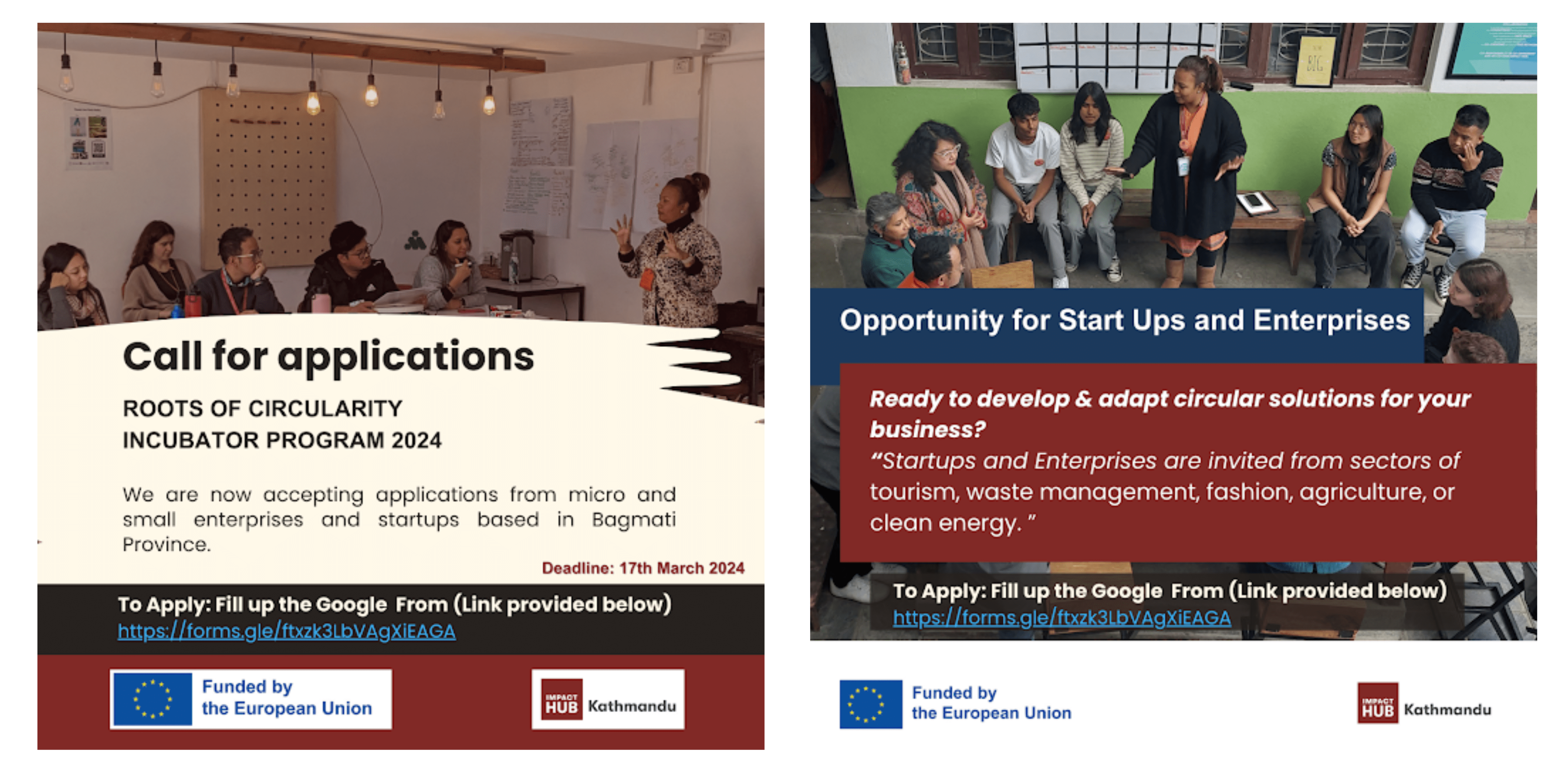
The applicants need to fill this google form: https://forms.gle/dEh9BiwtuDWjKnLMA
The application needs to be sent by 17th March 2024, 11:59 pm.


